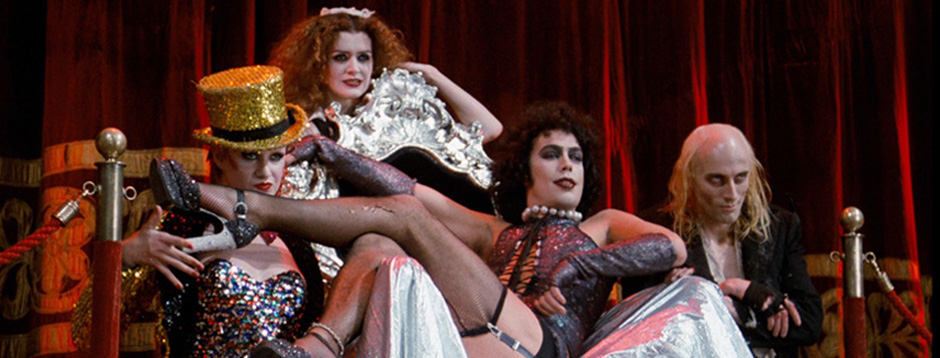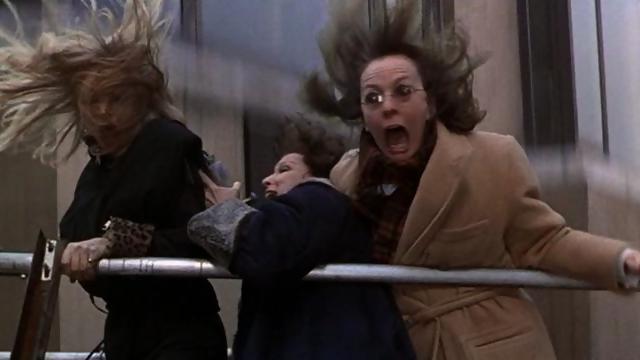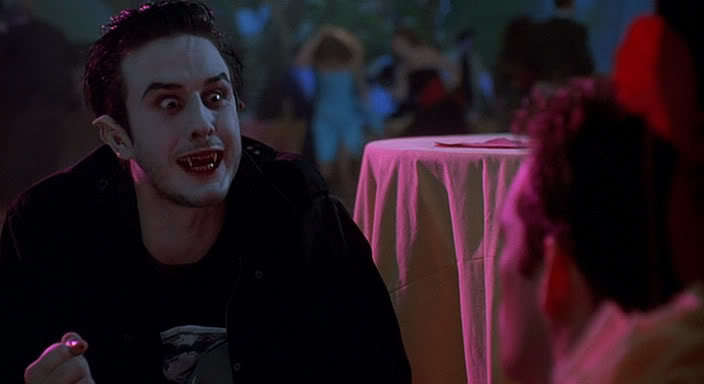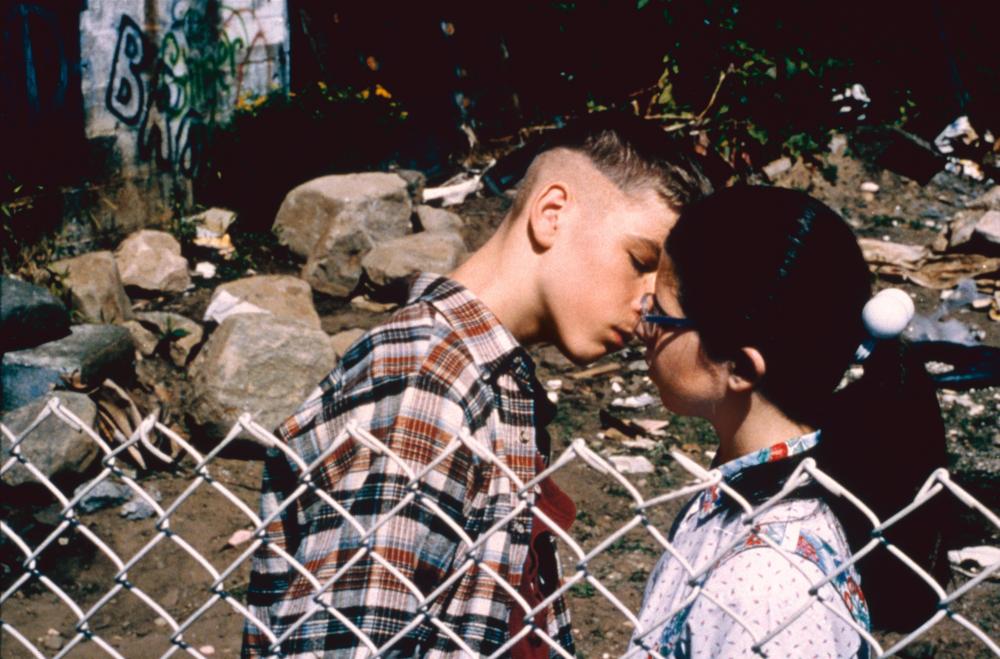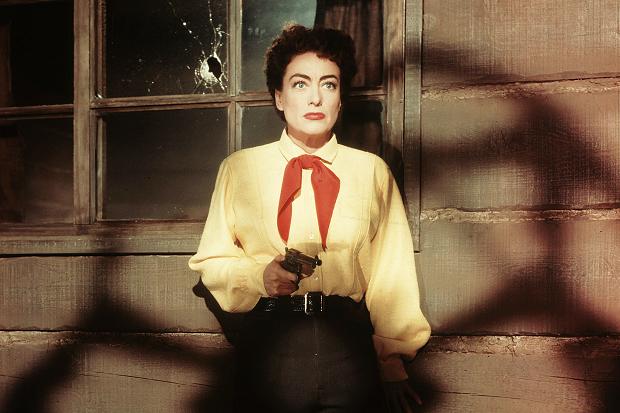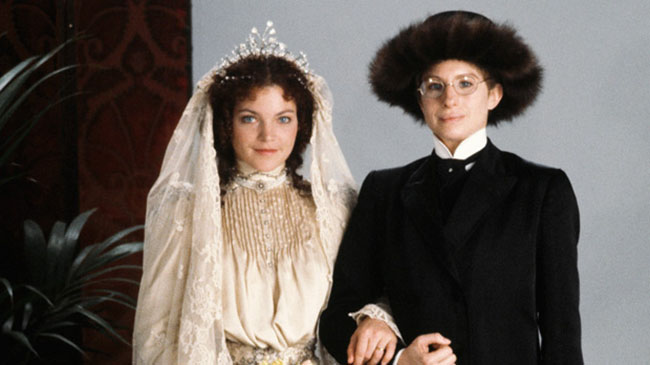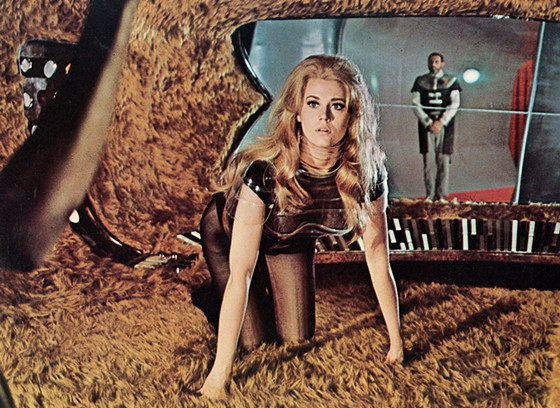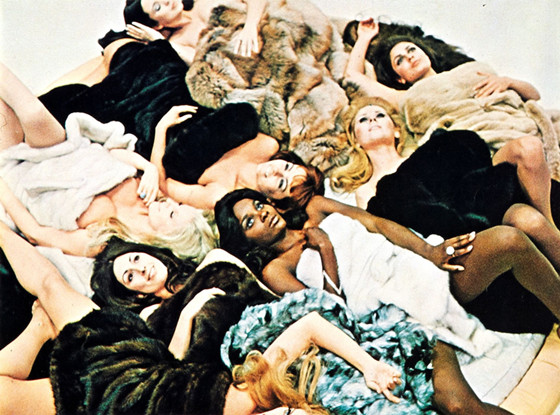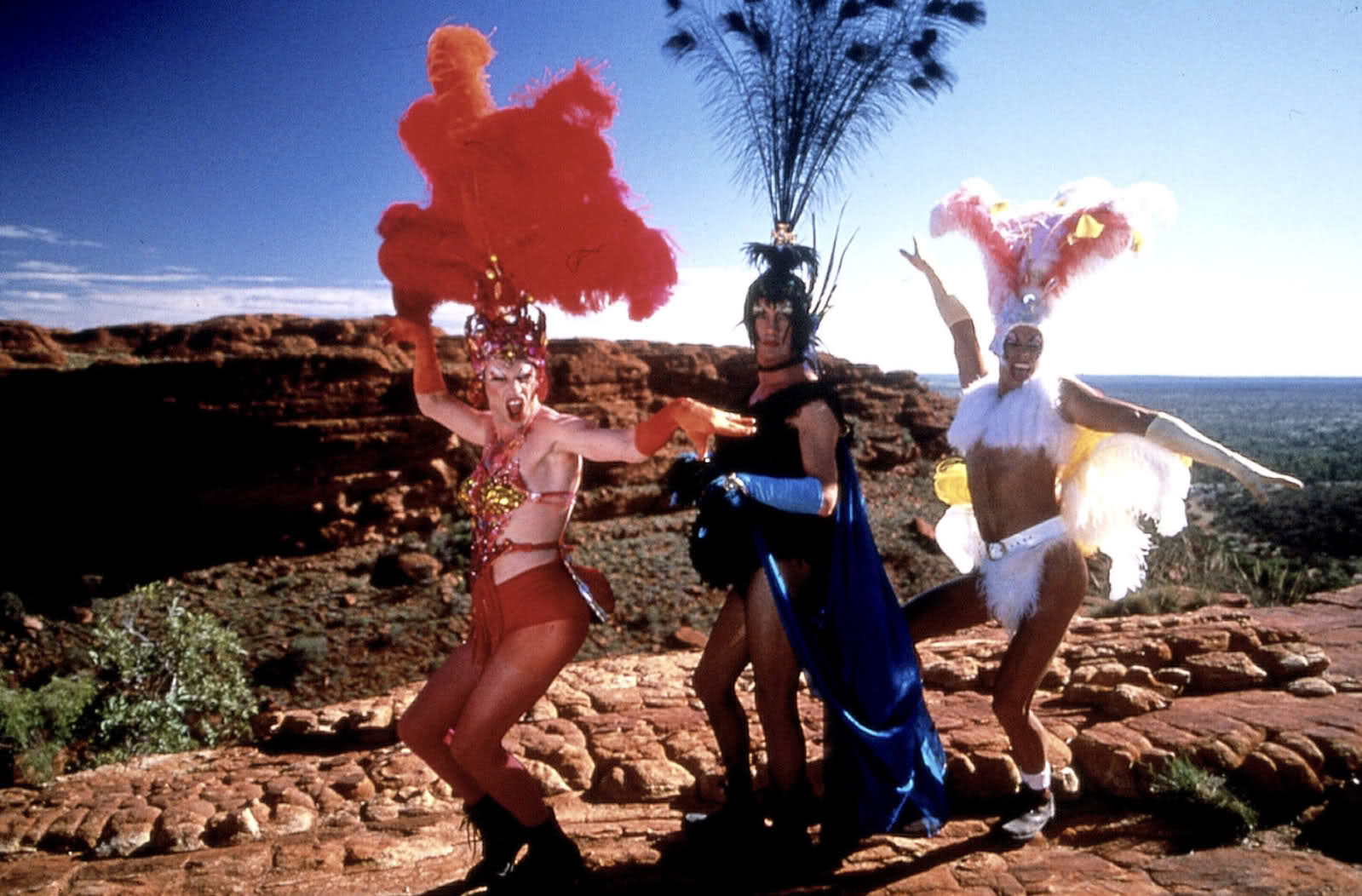Camp, as Susan Sontag noted, is an aesthetic sensibility. It is more complex than a “subjective” look because it is a codified way of looking. It appreciates the artificiality of art, inverts the aesthetics of beauty, and strips the work of its political/social/cultural context. My adoration of camp is not something that I have learned, but something that I have refined. It is a means of fetishizing the delivery of a line, or emulating a staunch performance by an actress. I consume these moments in films, and engrain them into my own pop culture lexicon.
There is no way to teach people to view these films through a camp lens, you can only refine your own inherent sensibility. The films listed here will result in three reactions: you will be completely disengaged with the film, you will be upset that your favorite campy film wasn’t listed, or you will relish in the titles (which will evoke your own relationship to the film). These are films that I appreciate from my own vantage point and which I believe emulate camp at its finest.
25. The First Wives Club (Dir. Hugh Wilson, 1996)
Brenda (Bette Midler), Elise (Goldie Hawn), and Annie (Diane Keaton) reunite after their college friend, Cynthia (Stockard Channing), commits suicide. As the three women catch up on their lives and slowly plan revenge against their cheating husbands, they discover that they are strong and independent women who don’t need vengeance to make them feel better.
The First Wives Club unites three iconic actresses whose careers were defined by unconventionality. Here they showcases their best assets and become appealing women who are not defined by their looks, but by their brains and zany antics. Nowhere is their queer appeal more apparent than when the three join forces and perform Lesley Gore’s “You Don’t Own Me.” Like “The Golden Girls,” The First Wives Club is a film about women of a certain age who challenge the aesthetics of beauty and have a lot more dimensions than their husbands’ one-note mistresses.
24. Buffy the Vampire Slayer (Dir. Fran Rubel Kuzui, 1992)
Buffy Summers (Kristy Swanson) is a vapid teenager whose main concerns are shopping, the prom, and hanging out with her equally vapid friends. When the mysterious Merrick (Donald Sutherland) tells Buffy that she has been chosen as a Vampire Slayer, Buffy must tap into her inherent martial arts abilities in order to combat a posse of hell-raising vampires.
The film was a bomb with critics and was eventually disowned by its writer, Joss Whedon (who would later adapt it into a TV series), but Buffy succeeds primarily by creating a bubbly world of blissful ignorance and bloodthirsty vampires. Buffy takes the conventions of teen flicks and vampire movies, and molds them to grotesque proportions (such as Buffy’s Valley girl dialect and Paul Reuben’s never ending death scene).
23. Welcome to the Dollhouse (Dir. Todd Solondz, 1995)
Dawn Wiener (Heather Matarazzo) is the victim of vicious lesbian rumors at her middle school, and is the butt of every joke in her household. As Dawn tries to deal with the struggles of her budding sexuality, she also has to endure the endless comparisons to her “talented” younger sister.
Solondz’s film is a kitschy look at middle child syndrome, filled with some of the most awkward daydreams and dance moves you will ever see. Dawn’s final dream sequence sees her rescuing her sister and becoming the town hero, only to be crushed by the reality of Dawn’s inferiority complex. It is a film whose central character is the victim of many quotable lines (which are too vulgar to bear repeating, especially out of context).
22. Johnny Guitar (Dir. Nicholas Ray, 1954)
Vienna (Joan Crawford) is the owner of a local saloon, which becomes the target of Emma Small’s (Mercedes McCambrigde) attack. With the arrival of Vienna’s old flame, Johnny Guitar (Sterling Hayden), Emma’s attacks evolve into a manhunt aimed at killing Vienna for her alleged “crimes.”
The film is bold to attack McCarthy-era politics, but my adoration lies in the film’s daring ability to take a glamour queen and see how she fares in a dusty setting. Joan Crawford’s masculine clothes can’t trick anyone into believing that her powdered face wouldn’t melt after an hour in the sun.
21. Yentl (Dir. Barbra Streisand, 1983)
Yentl’s (Barbra Streisand) independent nature is a trait that doesn’t sit well with the people her small Polish village. The villagers expect her to be a dutiful wife who relegates her ambitions to cooking, cleaning, and rearing children. Yentl’s ambitions are more complex and existential, leading her father, Rebbe Mendel (Nehemiah Persoff), to secretly teach her about the Talmud. When Rebbe Mendel unexpectedly dies, Yentl is thrown into disarray, but she soon discovers that she can keep her independence by moving to a new town and disguising herself as a boy named Anshel.
Streisand’s camp status was cemented by her ability to transcend Hollywood’s expectations of celebrity aesthetics. Add to that her penchant for flattering lighting/camera angles and you’ve got the makings of a camp masterpiece. Much like Joan Crawford’s inability to assumes a rugged persona in Johnny Guitar, Barbra Streisand’s “boyish” looks are more humorous to look at because you never for a second believe that Anshel is anything but a woman in drag. Streisand’s directorial debut is an exercise in musical excess and camp indulgence, seamlessly transitioning from such delicious songs as “Papa Can You Hear Me?” to the brilliant “A Piece of Sky.”
20. Barbarella (Dir. Roger Vadim, 1968)
Based on Jean-Claude Forest’s adult comics of the same name, Vadim’s campy sci-fi classic turned Fonda into a sex goddess of the 60s and 70s. Barbarella works so well because it relies more on exploitation than science fiction. Vadim knew he was making a film about sexual excess and titillation, which is why he uses every narrative excuse to show off Fonda in a jiggly situation. And let’s be honest, we watched the film more for Fonda and that hot angel than for any semblance of a plot.
19. Beyond the Valley of the Dolls (Dir. Russ Meyer, 1970)
The Kelly Affair, a rock band headed by Kelly (Dolly Reed), Casey (Cynthia Myers), and Petronella (Marcia McBroom), travels to Los Angeles where they seek fame and fortune. Their travels lead to many unexpected situations involving sex, paralysis, transsexuals, abortions, orgies, drugs, and eventual murder. Let’s just say this is quite an interesting route to take toward success.
Written by Roger Ebert and directed by the exploitation king, Russ Meyer, Beyond the Valley of the Dolls s a postmodern parody that exploits the campy elements of Valley of the Dolls. It is a film that, like Barbarella, is self aware of its plasticity and artificiality, which leads to overt and gratuitous scenes featuring prominent Playboy models-turned-actresses.
18. The Adventures of Priscilla, Queen of the Desert (Dir. Stephan Elliott, 1994)
Mitzi (Hugo Weaving), Bernadette (Terence Stamp), and Felicia (Guy Pearce) are three drag queens travelling across the outback in order to meet up with Mitzi’s secret wife and child. Along the way, the trio encounters homophobic slurs, drunken bar nights, charming beaux, and a performance by a Filipina who shoots ping-pong balls out of a certain orifice. When they arrive at their destination, they do what they do best: put on a show.
Priscilla is a prolonged drag performance that constantly entertains spectators with brilliant gowns, over the top wigs, and songs by Abba. It occasionally has its sobering moments, but for the most part it is about two men and a transgender woman who are able to exaggerate femininity and masculinity into a glitzy and glamorous career.
